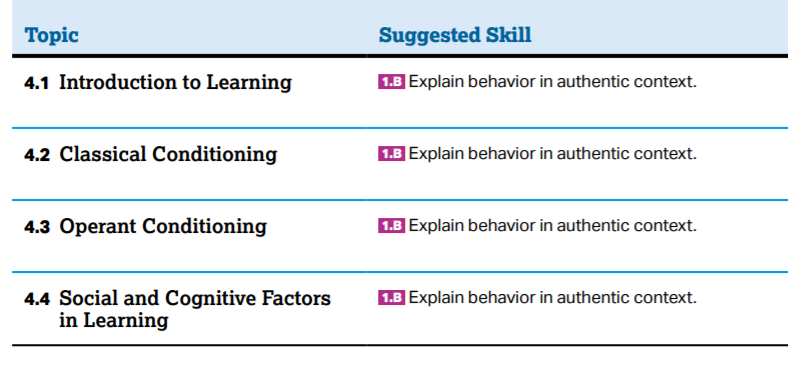Learning

Objectives:
• Distinguish general differences between principles of classical conditioning, operant conditioning, and observational learning (e .g ., contingencies) .
• Describe basic classical conditioning phenomena, such as acquisition, extinction, spontaneous recovery, generalization, discrimination, and higher-order learning .
• Predict the effects of operant conditioning (e .g ., positive reinforcement, negative reinforcement, punishment) .
• Predict how practice, schedules of reinforcement, and motivation will influence quality of learning .
• Interpret graphs that exhibit the results of learning experiments .
• Provide examples of how biological constraints create learning predispositions .
• Describe the essential characteristics of insight learning, latent learning, and social learning .
• Apply learning principles to explain emotional learning, taste aversion, superstitious behavior, and learned helplessness .
• Suggest how behavior modification, biofeedback, coping strategies, and self- control can be used to address behavioral problems .
• Identify key contributors in the psychology of learning (e .g ., Albert Bandura, John Garcia, Ivan Pavlov, Robert Rescorla, B . F . Skinner, Edward Thorndike, Edward Tolman, John B . Watson) .
Resources
Learning -DISCOVERING PSYCHOLOGY
The Self - DISCOVERING PSYCHOLOGY
How to Train a Brain - Crash Course Psychology #11
The Bobo Beatdown - Crash Course Psychology #12
